News
IGP Seeks 155,000 More Police Personnel
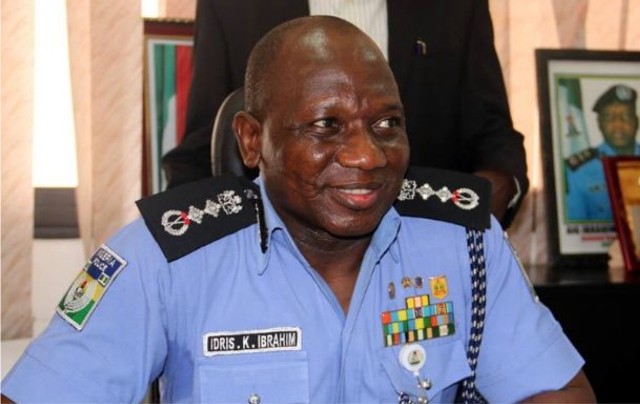
The Inspector-General of Police, Mr Ibrahim Idris, has said that the Nigeria Police Force requires additional 155,000 personnel to adequately provide security for the country.
Idris, who disclosed this at a two-day National Security Summit in Abuja, yesterday, said to achieve this, the force needed to recruit 31,000 annually for five years.
The theme of the summit is: “Forging Partnership for Effective Strategies to Curb the Menace of Kidnapping, Recurring Farmers-Herders Clashes and Criminality in Nigeria”.
“To attain the UN ratio requirement of one police officer to 400 citizens of a country, the Nigeria Police Force needs to recruit 155,000 to police Nigerian population of approximately 182 million,” he said.
Idris said that the police had not conducted recruitment into its rank and file cadre since 2011 until 2016 when the recruitment of 10,000 applicants was approved by the Federal Government.
He said that this development had left a huge gap in the manpower need of the force due to retirements, deaths and resignations.
The police boss said that the proposal had been forwarded to the Federal Government for consideration.
He added that inadequate funding, shortfall in power and training and retraining of personnel had been some of the challenges confronting the force.
“Over the years, the Nigeria Police Force saddled with the responsibility of policing the country, has been grappling with fundamental challenges which tend to impede its performance,” he said.
The inspector-general said that the issue of funding of police had been critical to all past police panels, adding that it had yet to be critically addressed.
He said that the Nigeria Police Force Reform Trust Fund bill before the National Assembly since 2008 had yet to be passed.
Idris called on members of the National Assembly to expeditiously pass the bill to address the challenge of funding for the police.
“We solicit the support and understanding of the National Assembly to give an accelerated hearing to this bill to adequately position the police for better funding and performance,” he said.
He said that the bill would further provide a legal framework that would outline the counterpart funding arrangement between the three tiers of government.
Idris noted that when passed, the police would be funded through a first line charge on the federation account quarterly.
He said that in spite of paucity of fund, the force in collaboration with other security agencies had been able to stabilise the polity.
In a goodwill message, the Senate Committee Chairman on Police Affairs, Sen. Abu Ibrahim, said the senate would soon pass the bill.
He said that the senate was committed to making laws that would impact positively on the development of the country.
The summit was organised by the police in conjunction with Leadership Newspapers Group Ltd and the National Council of Traditional Rulers of Nigeria.
News
You Failed Nigerians, Falana Slams Power Minister
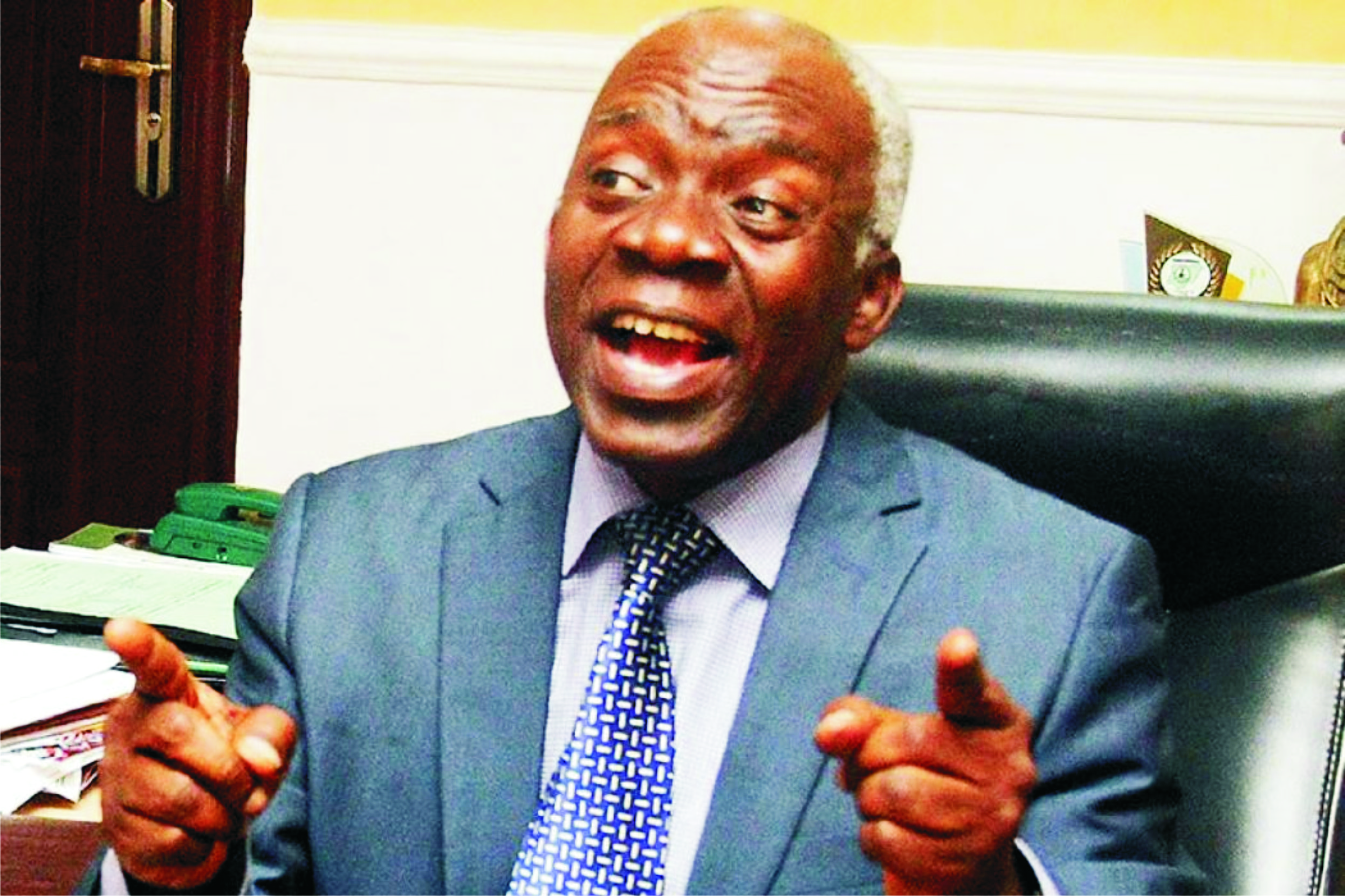
Human rights lawyer, Femi Falana, SAN, has passed a vote of ‘no confidence’ in the Federal Government, saying that the Minister of Power, Adebayo Adelabu, has failed Nigerians.
Falana was reacting to Adelabu’s appearance before the Senate to defend the increase in the electricity tariff and what Nigerians would pay on Monday.
The rights activists also claimed that the move is a policy imposed on the Nigerian government by the International Monetary Funds (IMF) and the World Bank.
Speaking on the Channels TV show on Monday night, Falana said, “The Minister of Power, Mr Adebayo Adelabu has failed to address the question of the illegality of the tariffs.
“Section 116 of the Electricity Act 2023 provides that before an increase can approved and announced, there has to be a public hearing conducted based on the request of the DISCOS to have an increase in the electricity tariffs. That was not done.
“Secondly, neither the minister nor the Nigeria Electricity Regulatory Commission has explained why the impunity that characterised the increase can be allowed.”
Falana also expressed worry over what he described as impunity on the part of the Federal Government and electricity regulatory commission.
““I have already given a notice to the commission because these guys are running Nigeria based on impunity and we can not continue like this. Whence a country claims to operate under the rule of law, all actions of the government, and all actions of individuals must comply with the provisions of relevant laws.
“Secondly, the increase was anchored on the directives of the commission that customers in Band A will have an uninterrupted electricity supply for at least 20 hours a day. That directive has been violated daily. So, on what basis can you justify the increase in the electricity tariffs”, Falana queried.
The human rights lawyer alleged that the Nigerian government is heeding an instruction given to her by the Bretton Wood institutions.
He alleged, “The Honourable Minister of Power is acting the script of the IMF and the World Bank.
“Those two agencies insisted and they continue to insist that the government of Nigeria must remove all subsidies. Fuel subsidy, electricity subsidy and what have you; all social services must be commercialised and priced beyond the reach of the majority of Nigerians.
“So, the government cannot afford to protect the interest of Nigerians where you are implementing the neoliberal policies of the Bretton Wood institutions.”
The Senior Advocate of Nigeria accused Western countries led by the United States of America of double standards.
According to him, they subsidize agriculture, energy, and fuel and offer grants and loans to indigent students while they advise the Nigerian government against doing the same for its citizens.
Following the outrage that greeted the announcement of the tariff increase, Adelabu explained that the action would not affect everyone using electricity as only Band A customers who get about 20 hours of electricity are affected by the hike.
Falana, however, insisted that neither the minister nor the National Electricity Regulatory Commission (NERC) has justified the tariff increase.
The senior lawyer said that Nigerian law gives no room for discrimination against customers by grading them in different bands.
He insisted that the government cannot ask Nigerians to pay differently for the same product even when what has been consistently served to them is darkness.
Following the outrage over the hike, Adelabu on Monday appeared at a one-day investigative hearing on the need to halt the increase in electricity tariff by eleven successor electricity distribution companies amid the biting economic situation in Nigeria.
However, Falana said that nothing will come out of the probe by the Senate.
He advised that the matter has to be taken to court so that the minister and the Attorney General of the Federation can defend the move.
News
1.4m UTME Candidates Scored Below 200 -JAMB
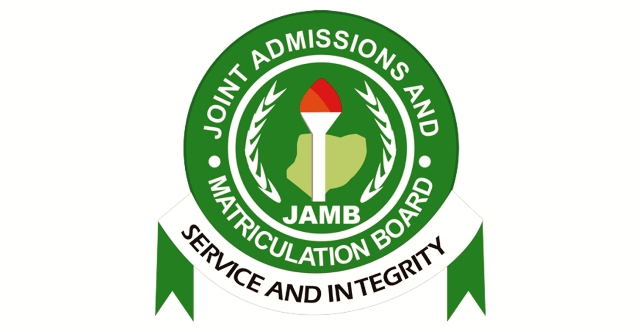
The Joint Admissions and Matriculation Board (JAMB) on Monday, released the results of the 2024 Unified Tertiary Matriculation Examination, showing that 1,402,490 candidates out of 1,842,464 failed to score 200 out of 400 marks.
The number of candidates who failed to score half of the possible marks represents 78 per cent of the candidates whose results were released by JAMB.
Giving a breakdown of the results of the 1,842,464 candidates released, the board’s Registrar, Prof. Ishaq Oloyede, noted that, “8,401 candidates scored 300 and above; 77,070 scored 250 and above; 439,974 scored 200 and above while 1,402,490 scored below 200.”
On naming the top scorers for the 2024 UTME, Oloyede said, “It is common knowledge that the Board has, at various times restated its unwillingness to publish the names of its best-performing candidates, as it considers its UTME as only a ranking examination on account of the other parameters that would constitute what would later be considered the minimum admissible score for candidates seeking admission to tertiary institutions.
“Similarly, because of the different variables adopted by respective institutions, it might be downright impossible to arrive at a single or all-encompassing set of parameters for generating a list of candidates with the highest admissible score as gaining admission remains the ultimate goal. Hence, it might be unrealistic or presumptive to say a particular candidate is the highest scorer given the fact that such a candidate may, in the final analysis, not even be admitted.
“However, owing to public demand and to avoid a repeat of the Mmesoma saga as well as provide a guide for those, who may want to award prizes to this set of high-performing candidates, the Board appeals to all concerned to always verify claims by candidates before offering such awards.”
Oloyede also noted that the results of 64,624 out of the 1,904,189, who sat the examination, were withheld by the board and would be subject to investigation.
He noted that though a total of 1,989,668 registered, a total of 80,810 candidates were absent.
“For the 2024 UTME, 1,989,668 candidates registered including those who registered at foreign centres. The Direct Entry registration is still ongoing.
“Out of a total of 1,989,668 registered candidates, 80,810 were absent. A total of 1,904,189 sat the UTME within the six days of the examination.
“The Board is today releasing the results of 1,842,464 candidates. 64,624 results are under investigation for verification, procedural investigation of candidates, Centre-based investigation and alleged examination misconduct”, he said.
Oloyede also said the Board, at the moment, conducts examination in nine foreign centres namely: Abidjan, Ivory Coast; Addis Ababa, Ethiopia; Buea, Cameroon; Cotonou, Republic of Benin; London, United Kingdom; Jeddah, Saudi Arabia; and Johannesburg, South Africa.
“The essence of this foreign component of the examination is to market our institutions to the outside world as well as ensuring that our universities reflect the universality of academic traditions, among others. The Board is, currently, fine-tuning arrangements for the conduct of the 2024 UTME in these foreign centres,” he explained.
News
Ex-CBN Director Admits Collecting $600,000 Bribe For Emefiele
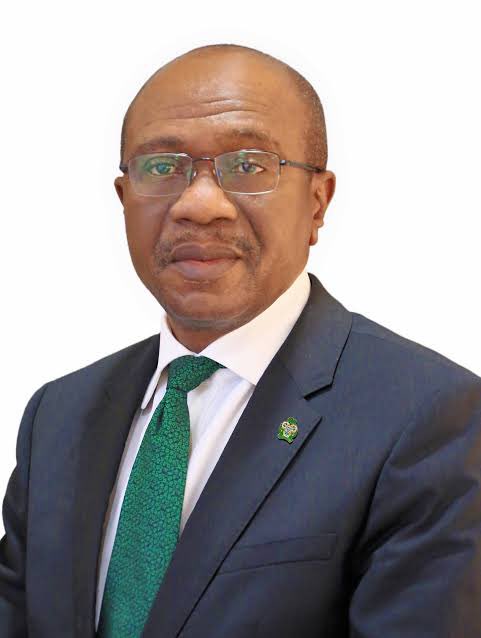
A former Director of Information Technology with the Central Bank of Nigeria, John Ayoh, has alleged that he collected on behalf of the former governor of the apex bank, Godwin Emefiele, a sum of $600,000 in two installments from contractors.
Ayoh, the second witness of the Economic and Financial Crimes Commission (EFCC), disclosed this on Monday while recounting instances where he facilitated the delivery of money to Emefiele, claiming it was for contract awards.
Under cross-examination at the Ikeja Special Offences Court in Lagos by the defence counsel, Olalekan Ojo (SAN), Ayoh admitted to facilitating the alleged bribery under pressure.
The embattled former governor of the apex bank is having many running legal battles both in Abuja and Lagos and is being tried by the EFCC at the Special Offences Court over alleged abuse of office and accepting gratification to the tune of $4.5 billion and N2.8bn.
He was arraigned on April 8, 2024, alongside his co-defendant, Henry Isioma-Omoile, on 26 counts bordering on abuse of office, accepting gratifications, corrupt demand, receiving property, and fraudulently obtaining and conferring corrupt advantage.
Emefiele’s defence, however, challenged the court’s jurisdiction over constitutional matters, urging the quashing of counts one to four and counts eight to 24 against him.
Ayoh, who was led in evidence by the EFCC prosecution counsel, Rotimi Oyedepo (SAN), said the first money he collected on Emefiele’s behalf was $400,000 which his assistant, John Adetola, came to collect at his house in Lekki, Lagos State.
He further told the court that the second bribe of $200,000 was collected at the headquarters of CBN, at the Island office.
He said the money was brought in an envelope, adding that when the delivery person, Victor, was on the bank’s premises, he contacted Emefiele, who insisted on receiving the package directly from Ayoh without involving third parties.
He said when he went to deliver the package, he saw many bank CEOs waiting to see the former apex bank governor.
When questioned if he had ever been involved in any criminal activity, he responded in the negative but admitted that he had facilitated the commission of crime unknowingly.
“I believe I did admit in my statement that I was forced to commit the crime. I don’t know the exact word I used in my statement, but I said we were all forced with tremendous pressure to bend the rules,” he said.
When asked if he opened the envelopes he collected on the two occasions and counted the money to confirm the amount, he was negative in his reply, adding that he did also write in his statement that the money was given to influence the award of contracts.
On whether the EFCC arrested him, the witness said he was invited on February 20, 2024, and returned home after he was granted bail.
Earlier, Emefiele asked the court to quash counts one to four and counts eight to 24 against him, as the court lacks the jurisdiction to try him.
Speaking through his counsel, Ojo, he said counts one to four were constitutional matters, which the court lacked the jurisdiction to determine.
In his argument, citing Sections 374 of the Administration of Criminal Justice Act and 386(2), the defence counsel told Justice Rahman Oshodi that Emefiele ought not to be arraigned before the court on constitutional grounds.
He, therefore, urged the court to resolve the objection on whether the court had the jurisdiction to try the case or not.
The second defendant’s counsel, Kazeem Gbadamosi (SAN), also relied on the submissions of Ojo.
The EFCC counsel, Oyedepo, however, objected, as he asked the court to disregard the decision of the Court of Appeal relied upon by Ojo, saying that the Court of Appeal could not set aside the decision of the Supreme Court on any matter.
Ruling on the submissions of the counsel, Justice Oshodi said he would give his decision on jurisdiction when he delivered judgment as he adjourned till May 3.
He also directed the EFCC to serve the defence proof of evidence on witness number six and his extrajudicial statement.
-

 Business5 days ago
Business5 days ago‘Foreign Shipowners Deprive Nigeria Of $9.2bn Annually’
-
Opinion4 days ago
The Value Of Books And Reading
-

 News9 hours ago
News9 hours ago1.4m UTME Candidates Scored Below 200 -JAMB
-
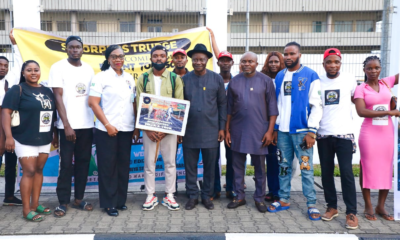
 News4 days ago
News4 days agoFubara Wants Rivers Youths To Acquire Useful Skills
-

 Maritime4 days ago
Maritime4 days agoUnfair Treatment Of Seafarers Bothers IMO
-
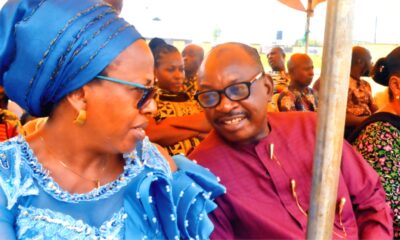
 Rivers5 days ago
Rivers5 days agoCommittee Concludes Open Verification Of MIle 1 Market Allotees
-

 Education4 days ago
Education4 days agoBauchi Govt Threatens To Revoke Scholarship Of Unserious Students
-
News10 hours ago
Gunmen Kidnap Four In Abuja

